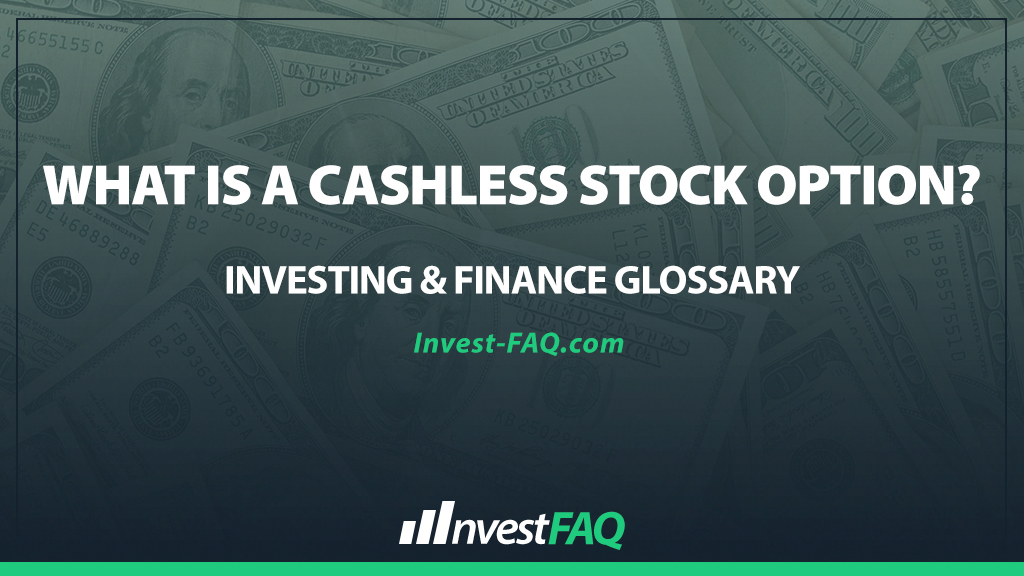
Cashless Stock Option
Contents
A cashless stock option is a method used by employees or executives to exercise stock options without the need to initially provide the cash to buy the shares. Instead, a portion of the shares is sold immediately upon exercise to cover the exercise cost and, often, the taxes due, with the remaining shares being received by the employee.
This approach is commonly used in corporate compensation plans, offering a way for employees to benefit from stock options as part of their remuneration without requiring upfront cash.
It facilitates the exercise of options for employees who may not have the liquid assets to purchase the shares outright, thereby aligning employee interests with the company’s success without imposing a financial burden.
Example of a Cashless Stock Option
An employee at “Tech Innovations Inc.” is granted stock options at an exercise price of $50 per share. When the company’s stock price rises to $100, the employee decides to exercise 1,000 options using the cashless method.
Transaction Steps:
The employee exercises 1,000 options, requiring $50,000 ($50 x 1,000) to purchase the shares.
To cover this, 500 shares are immediately sold at the current price of $100, generating $50,000.
The remaining 500 shares are transferred to the employee.
Accounting Entry for Tech Innovations Inc.:
No cash transaction occurs from the employee to the company.
The company records the issuance of 1,000 shares at the exercise price and notes the transfer of 500 shares to the brokerage or market, with the employee receiving the remaining 500 shares.
In this scenario, the cashless exercise allows the employee to leverage the increased stock value to cover the exercise cost without needing personal funds.
The sale of half the shares obtained through the option exercise provides the necessary cash, with the employee ultimately owning a significant stake in the company without an initial cash outlay.
This transaction demonstrates how cashless stock options serve as an effective compensation tool, fostering employee participation in company growth.
Significance for Investing & Finance
The significance of cashless stock options in accounting and business includes:
Employee Incentivization: They provide a non-cash way to incentivize and reward employees, directly tying their rewards to the company’s performance and encouraging loyalty and motivation.
Liquidity Management: For employees, it offers a way to exercise options and obtain equity in the company without affecting personal liquidity or incurring debt.
Simplified Administration: Cashless options simplify the administrative process for both the company and the employee, eliminating the need for employees to provide cash upfront and for companies to handle these transactions directly.
Financial Planning: Companies need to account for these transactions’ implications on share dilution and expense recognition, making them an essential consideration in financial reporting and planning.
In summary, cashless stock options provide an advantageous mechanism for both employees and employers, facilitating the exercise of stock options and the alignment of interests without the immediate need for cash.
This approach supports broader participation in equity ownership among employees and plays a vital role in compensation strategies, with important implications for corporate finance and accounting practices.
FAQ
What are the financial implications for an employee choosing a cashless exercise of stock options?
A cashless exercise allows an employee to leverage the current stock value to acquire shares without upfront cash, but it may result in fewer shares owned after part of them are sold to cover the exercise cost and taxes.
How does a cashless stock option exercise affect a company’s financial statements?
Though no cash changes hands between the employee and the company during a cashless exercise, the event must be accounted for as a share-based transaction, affecting the company’s equity structure and potentially its earnings per share calculation due to share dilution.
Can all companies offer cashless stock option exercises to their employees?
Cashless stock option exercises are generally available in companies with publicly traded shares or private companies with arrangements for a third-party broker to facilitate such transactions, depending on the company’s stock option plan details.
What are the tax considerations for an employee using a cashless option exercise?
Employees may incur capital gains tax on the difference between the exercise price and the sale price of the shares sold to cover the exercise cost, and they should consult a tax advisor to understand the specific implications fully.
